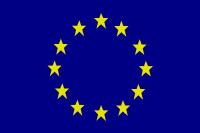Event 29 October 2025
- Home
- Press area
- Press releases
- Improving disease surveillance in Europe
A step forward towards improving disease surveillance in Europe: results of the MOOD project

The World Health Organization's Maria Van Kerkhove (Department of Epidemic and Pandemic Prevention and Preparedness) will open the final conference of the MOOD project on 26 November © Projet MOOD
Respiratory-borne pathogens (influenza viruses, coronaviruses), climate-sensitive infectious diseases, antimicrobial resistance in food producing animals, disease X and pandemic preparedness in Europe: these are just some of the topics that will be addressed on the first day of the MOOD project's final scientific conference. Entitled ‘Emerging infectious diseases in Europe: challenges and opportunities in data sharing and modelling of response for improved One health’, the conference will take place over two days in Italy.
The project's scientific advances will be presented on the second day in four sessions:
- Model diseases and model outputs studied (e.g., avian influenza, West Nile virus and other emerging mosquito-borne viruses, and tick-borne encephalitis in Europe);
- Lessons learned from Disease X and COVID-19 pandemic (e.g., areas of emergence of rodent- and bat-borne pathogens in Europe and work on COVID-19 carried out by MOOD in response to requests from various national public health agencies at different stages of the pandemic);
- Preparing data and innovative tools to improve epidemic intelligence in Europe (e.g., the UTOPIA and MUST-AI tools), including the provision of environmental and climatic data to model diseases;
- Improving epidemic intelligence practices in European health agencies (e.g., how to co-design health risk assessment tools with potential end-users).
Keynote speakers from the MOOD project consortium will include:
- Philippe Lemey (KU Leuven, Belgium) on the phylodynamics of respiratory viruses in Europe;
- Flavia Riccardo (ISS, Italy) on arbovirus disease surveillance in Italy;
- Thomas Van Boeckel (University of Zürich, Switzerland) on antimicrobial resistance in Europe;
- Thierry Lefrançois (CIRAD, France) on the science-decision interface for better anticipation and preparation for major health risks;
- Guy Hendrickx (Avia-GIS, Belgium) on the MOOD platform and its sustainable rollout.
The MOOD project has successfully achieved its objectives by providing data mining and analytical techniques to use Big Data from multiple sources to improve the detection, surveillance and assessment of emerging infectious diseases of importance to Europe. The project has resulted in over 140 scientific publications and 60 datasets available via OpenAIRE - Open Access Infrastructure for Research in Europe.
"The ultimate result of the project is the MOOD platform. By bringing together users from health agencies and researchers, we have been able to improve the efficiency of surveillance practices. We are now looking to the future by setting up and running a large network of users in Europe and beyond, ensuring the sustainability and evolution of the MOOD platform through an international not-for-profit association, and why not through a MOOD 2 project", says Elena Arsevska, veterinary epidemiologist at CIRAD and project coordinator.
Many other events took place during the MOOD project, one of the most important being thefinal user workshop , held on 23 and 24 October in Antwerp, Belgium, where disease specialists, epidemiologists and modellers were trained in the use of the MOOD platform and benefited from exchanges with other users.
With its final scientific conference, the MOOD project brings to a close five years of work by more than 20 partners to improve epidemic intelligence across Europe. The MOOD project has contributed to a better understanding of disease dynamics, to modelling their risk of occurrence, as well as developing surveillance and control strategies for the improved management of many emerging infectious diseases in Europe.
In a context of global change and Big data, the MOOD platform focuses on developing services and tools in a single platform for the early detection, assessment and monitoring of emerging infectious diseases. The platform will complement the tools already used by national public and animal health agencies for risk assessment, surveillance and mitigation, with a particular focus on access to and visualisation of a range of environmental, climaticand epidemiological data useful for modelling and risk assessment, as well as the visualisation of risk maps for tick-borne encephalitis (TBE), highly pathogenic avian influenza (HPAI), antimicrobial resistance (AMR), West Nile virus in Europe, and a range of other tools and codes for modelling and assessing risks.
Discover the platform: https://app.mood-h2020.eu/
This project received funding from the EU Horizon 2020 research and innovation programme, under funding agreement No. 874850 - MOOD.




























